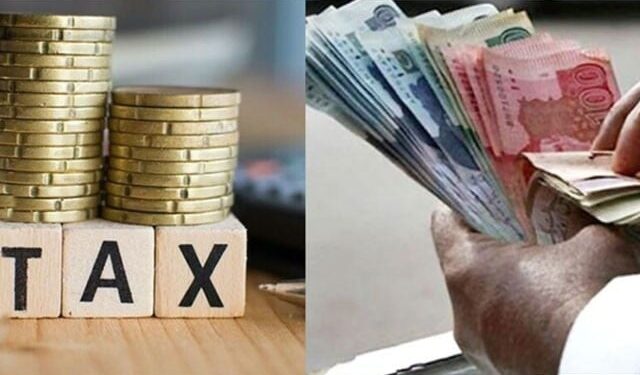ISLAMABAD: In Pakistan, the salaried class, the most affected by inflation, has paid a total of 111 billion rupees in income tax in just three months of the current financial year, which is 1550 percent more than the taxes paid by businessmen approved by the ruling party. The stock is 56 percent higher than last year.
In the first quarter of the last financial year, salaried individuals paid Rs 71 billion. In June this year, instead of reducing expenditure and effectively increasing the tax net, the government increased the tax burden on salaried individuals. Income tax of 28 billion rupees has been paid by all federal and provincial government employees whose salaries have increased by 20 to 25 percent.
The remaining Rs 83 billion in income tax was paid by private sector employees, the majority of whom do not even get an annual increment, while the FBR collected only Rs 6.7 billion from businessmen.
In the budget, the government had increased the rate of withholding tax on supplies from 2.5 to 150 percent, hoping to bring the traders into the tax net, but the traders paid barely Rs 10 lakh in tax directly to the FBR. 0.001% of the target given by MF.
For the July-September quarter of the current financial year, the amount of tax revenue collected by FBR under the Trader Friendly Scheme was Rs 10 billion. Instead of giving any relief to salaried and non-salaried individuals, the government increased the income tax rate to around 39 percent for salaried individuals, 44 percent for associations and 50 percent for non-salaried individuals. Which the present Chairman FBR Rashid Langriyal himself declared as unfair.
The government had also imposed a 10 percent surcharge on the income tax paid by an individual on an annual income of Rs 10 million. The FBR had told the federal cabinet that after the increase in the tax rate in the budget, the additional tax contribution from the salaried class in the current financial year 2024-25 will be Rs 85 billion, but the results of the first three months would show that FBR has reduced only the additional taxes of the salaried class.
The FBR has collected an additional Rs 40 billion in just three months. It was revealed in the report about the $7 billion loan package from the IMF that the government and the IMF are not going to put more burden on the salaried people. Totally agree. According to the memorandum signed by Federal Finance Minister Muhammad Aurangzeb, the government is determined to increase the tax revenue by 357 billion rupees by rationalizing the tax rate and reducing the number of rate slabs for salaried and non-salaried persons to five. is
According to the memorandum, the slab rate will be increased to 45% for non-salaried persons on excess income of more than Rs.5.6 million (per annum). The finance minister said in the economic memorandum that the upper limit on the 5th slab for salaried persons will be reduced to Rs 4.1 million per annum.
On the one hand, the salaried class is forced to pay more despite their declining income, while no solid strategy has been made to collect tax from the traders. Under the so-called trader-friendly scheme, the traders do not even pay a tax rate below Rs 100 per month.
As of mid-October, the total tax contributed by traders is only Rs 1.2 million. The IMF program aims to strengthen general government tax revenues to 12.3 percent of GDP this fiscal year, but it looks set to further burden salaried individuals.

























